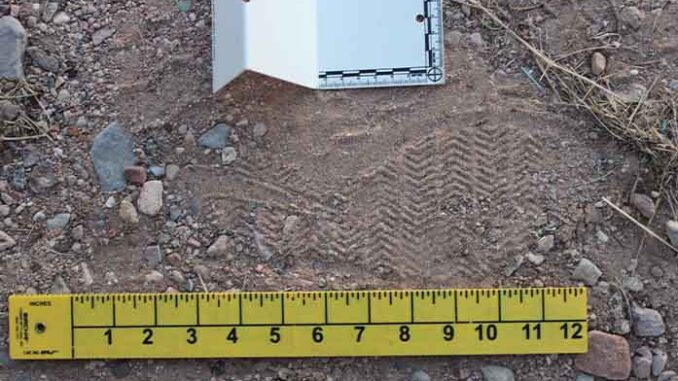
A Tombstone man has been paid $25,000 to settle the lawsuit he filed after being forced to spend a night in jail following an unlawful search and his questionable arrest for burglary based on his fondness for Nike shoes.
In January 2019, Matthew King was taken into custody by the Tombstone Marshal’s Office (TMO) on suspicion of burglarizing a home where deputies found Nike shoeprints. The next day King’s family paid a non-refundable $2,500 to get him out of the Cochise County jail pending trial.
But the arrest fell apart just hours later when another police agency tied the Tombstone burglary to several others committed by someone else, who also owned Nike shoes. King later sued TMO, the city, and five employees for constitutional claims and intentional infliction of emotional distress.
Judge Jason Lindstrom went on to rule that then-TMO Sgt. Travis Mattern acted recklessly when applying for a search warrant of King’s residence, as there were “clear discrepancies between the facts” presented to the justice of the peace and the actual facts.
Lindstrom also ruled a jury would decide whether the city was liable for the sergeant’s decision to arrest King even though the unlawful search turned up nothing tying King to the burglary.
A trial was likely to take place in early 2023, but Lindstrom dismissed the case with prejudice last month after being advised the parties settled. The $25,000 check was issued to King by the Arizona Municipal Risk Retention Pool.
The settlement with King cost the city $1,000 as a deductible, according to Tombstone City Clerk Brenda Ikert. The risk management pool covered the rest of the payout as well as the cost of the attorney who represent the city defendants.
Central to King’s lawsuit was a search warrant issued two days after the Jan. 26, 2019, burglary. Mattern told a justice of the peace that shoeprints at the crime scene matched shoeprints found at a local cemetery where King had recently attended a funeral.
The sergeant also cited statements from an anonymous King relative who purportedly “implicated” King as the burglar.
However, the shoeprints from the two locations “clearly” did not match, Lindstrom ruled in September 2021. Nor had Mattern presented any evidence actually tying King to either set of prints.
Lindstrom added it was equally concerning that the relative never gave anyone at TMO information connecting King to the burglary, despite what Mattern told the justice of the peace.
“The Deputy’s presentation of the information collected from the anonymous witness was at least reckless and is objectively misleading,” Lindstrom wrote in the ruling.
The judge’s ruling would have allowed jurors to consider arguments at trial that King’s arrest was unlawful. And to consider the fact he was arrested in front of his family and forced to spend a night in jail before they could arrange to post the $2,500 needed for his pretrial release.
“Suspicions are not evidence, and do not support probable cause to arrest,” the judge wrote.
Judge Overrules Himself And Finds Former Deputy Acted Recklessly In Applying For Search Warrant
Public records show all five TMO employees named in King’s lawsuit are no longer with the agency, including then-Deputy Robert Valenzuela who resigned without notice in February 2020 after questions arose about his personal relationship with a suspect in theft investigation.
Valenzuela’s Arizona Peace Officer Standards and Training (AZPOST) certification is inactive, and he must undergo a polygraph concerning that relationship if he seeks a new law enforcement job, according to AZPOST records.
Then-Marshal Bob Randall retired in October 2020, and a few months later Mattern voluntarily relinquished his AZPOST certification following his admission of sexual conduct while on-duty. The other two deputies took positions with different agencies.
